全球卫星导航定位定轨技术及应用
technique of global satellite navigation / positioning / orbit and its applications (gsnpoa)
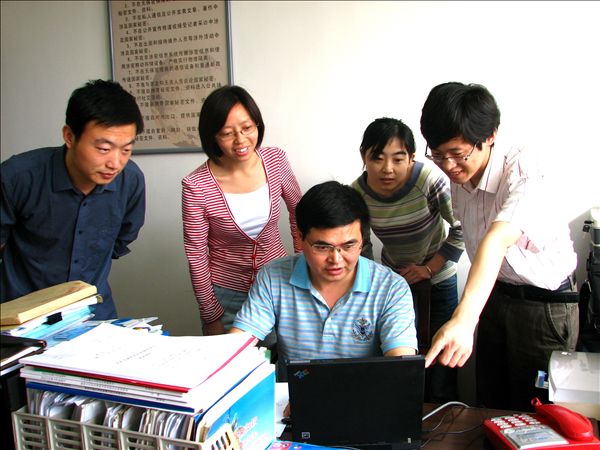
研究内容:从事卫星大地测量理论、技术与方法的前沿/热点领域研究与应用,包括gps/gnss电离层、气象与空间环境监测预报;形变监测理论方法;卫星与深空导航定位定轨理论方法;测量误差与数据处理理论方法;gps/gnss软件研制及其在国防和国民经济建设高技术领域应用等。
research area: scientific approach undertaken tend to focus on the frontier and hot topics of theoretical study, algorithm development and innovative applications in satellite geodesy, including ionosphere/meteorology/spatial environmental monitoring and predictionsbased on gps/gnss, deformation monitoring, high precision positioning/navigation/ orbit determination for satellites and deep space probe, modern data processing methods and error theory, gps/gnss software development and its applications in national economic and military high-tech fields.
组长:袁运彬
组员:欧吉坤 钟世明 柴艳菊霍星亮
王海涛 李薇 刘西凤
head: professor yunbin yuan
member: professor jikun ou, associate professor shiming zhong, and dr.yanju chai, dr. xingliang huo ,dr. haitao wang, dr. wei li, ms. xifeng liu
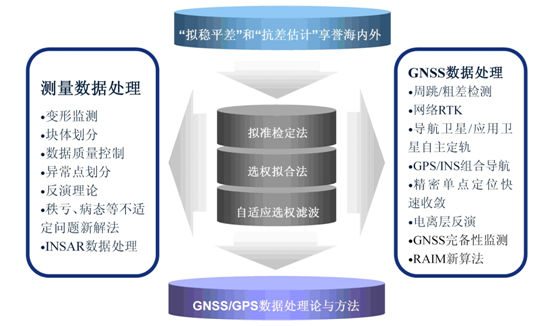
图1. 独具特色的测量误差理论为解决gnss数据处理中的诸多关键技术奠定了坚实基础
fig.1 possessingown feature error theoriesproposed or improved by gsnpoa have provided important implements for solving the key and difficult problems in gnss research and application
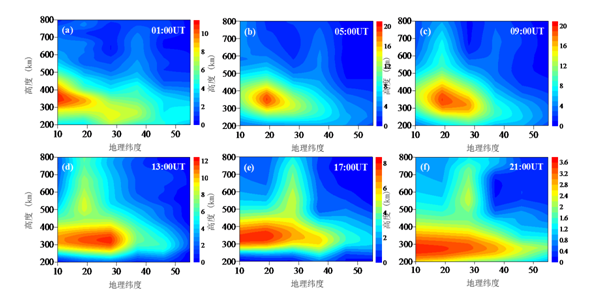
图2. 基于gnss反演磁暴期间电离层电子密度结构变化
fig.2 ionospheric spatial and temporal variations during magnetic storm over chinaexplored by gnss-based tomographic technique
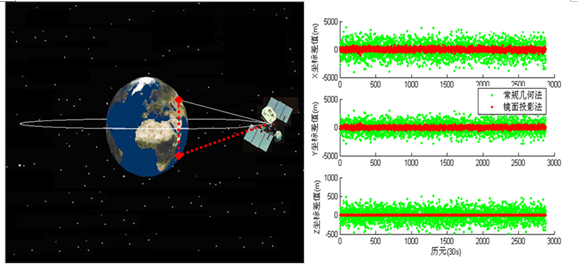
图3 针对我国geo卫星精密定轨方法的特点,提出独具特色的镜面投影法,定轨精度明显优于常规几何法
fig.3 an innovation approach named the mirror project method for precision orbit determination of geo is developed and the accuracy of its results obviously excels that of the existing methods.
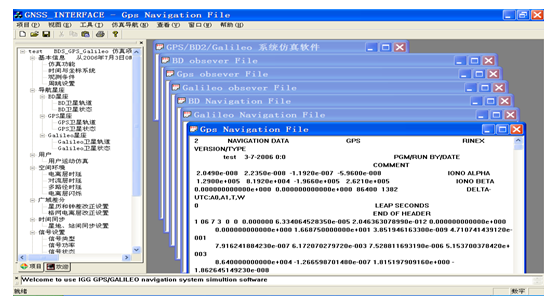
图4. 自主研制bd2/gps/galileo系统仿真平台,其核心技术已应用于我国民用卫星导航系统质量检测平台
fig.4 a gnss simulation system developed independently by gsnpoa and its key technique has been successfully applied into the chinese civil gnss quality examination platform.
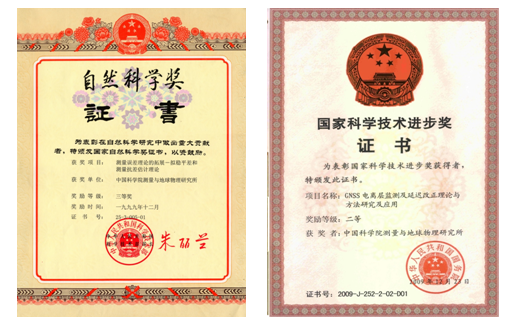
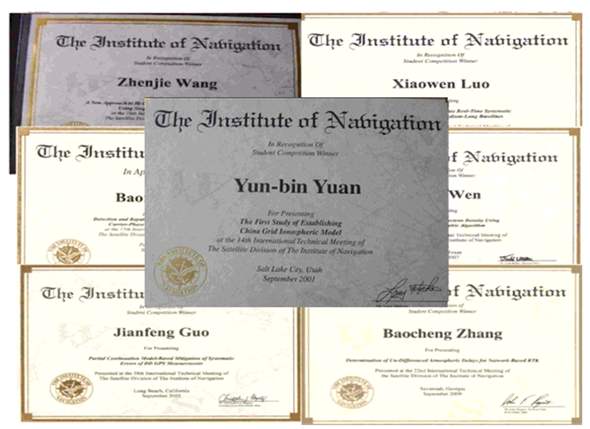
图5. 相关研究成果获1999年国家自然科学奖三等奖,2009年国家科技进步奖二等奖、2008年测绘科技进步奖一等奖、2008年湖北省科技进步奖二等奖、2004年军队科技进步奖二等奖、7次获国际ion-gnss导航大会学生优秀论文奖
fig.5 the research fruits have been awarded prizes in national, provincial and ministerial levels, e.g. the 1999 state natural science award with 3rd class, the 2009 state scientific and technological progress award with 2nd class, and the student competition winner at the international technical meeting of the satellite division of the institute of navigation by 7 consecutive times from 2001 to 2009, etc.

